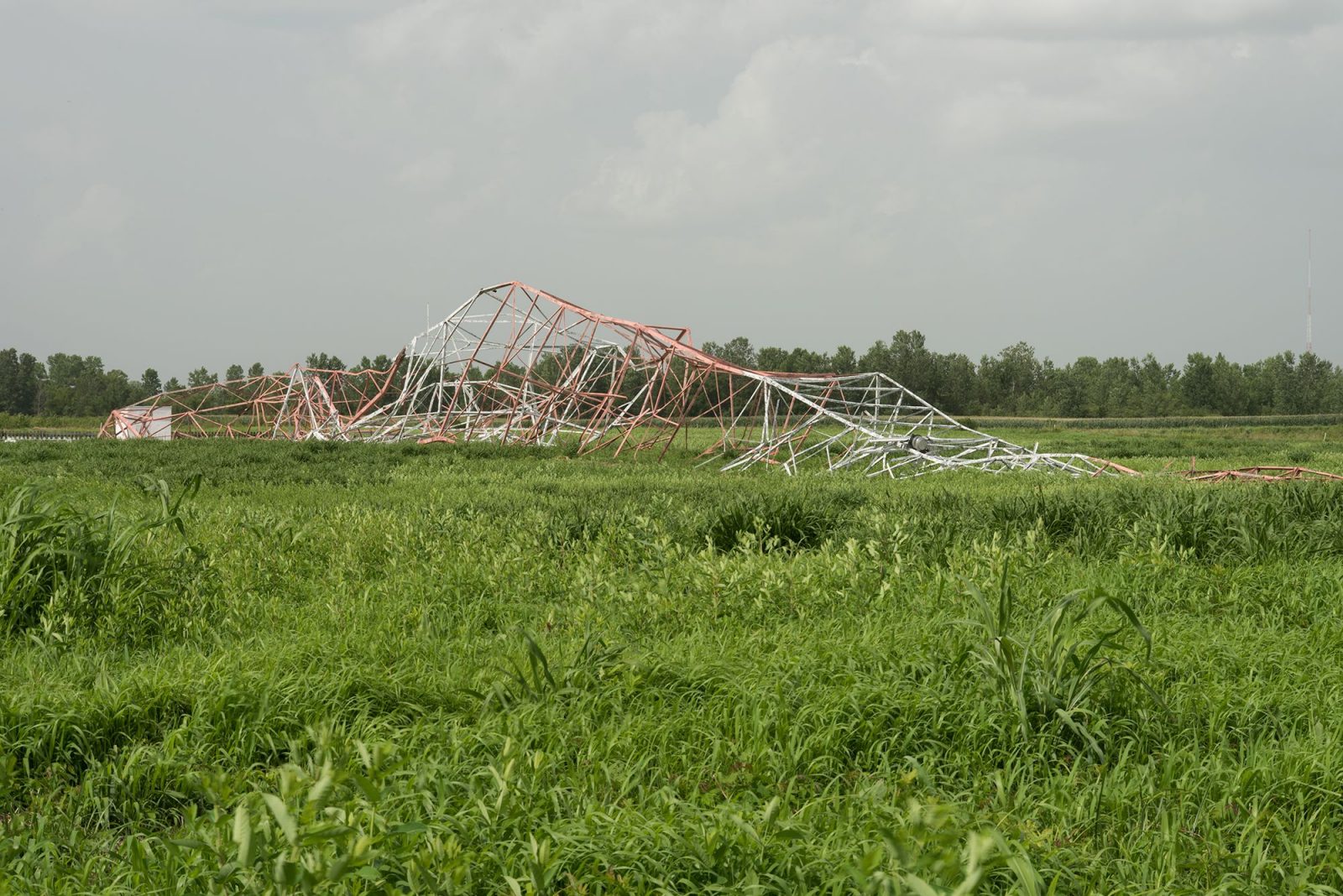- Jennifer Colten
- Matthew Fluharty
- Derek Hoeferlin
- Gavin Kroeber
- James McAnally
- Natalie Mueller
- Lynn Peemoeller
- Treasure Shields Redmond
- Jesse Vogler
Field Station 3: Anthropocene Vernacular
Industry, Indigeneity, and Empire
The St. Louis region is an irreducible landscape that carries the memories, meanings, and anxieties of millennia of settlement overlain on a metropolitan area grappling with the persistent, interconnected legacies of industry, race, and empire. Here, the Mississippi River is a hydraulic cleave through a territory that is rife with contradiction: once the meeting point of the tribes of the Osage and the Illinois, the Cahokia and the Missouri; once a boundary between empires; once a line between the free and the enslaved; still a real and conceptual divide to collective imagination and action. Along this river, which troubles the totalizing binaries of corporations and individuals, environmental devastation and renewal, rural and urban geography, distant past and uncertain present, these latent histories and liminal boundaries rise to the surface and resist any form of clean analysis, any easy narrative closure.
Read More
- contributionJennifer Colten, Jesse Vogler
Significant and Insignificant Mounds: an Essay
Deciphering the cosmology of artificial hills—from the Cahokia Mounds to the slag heaps of today.
Storytelling, Landscape, Deep time, History, Local knowledge, Anthropology, Colonialism
- contributionJennifer Colten, Jesse Vogler
Significant and Insignificant Mounds: Presentation
What can the mounds of North America—from temples to landfills—tell us about the history of settlement and the anthropogenic condition we inhabit today?
Reflection, Field Study, Deep time, History, Urbanism, Landscape, Epistemology
- contributionSusan Bostwick, Rob Connoley, Katie Englemeyer, Gayle Fritz, Bill Iseminger, Jennifer McBride, Natalie Mueller, Lynn Peemoeller
Lost Crops Conversation
A conversation on the evolution of agriculture and foodways, and how that has affected representations of landscape, cuisine—and a cracker box.
Conversation, Agriculture, Representation, Landscape, Biodiversity, Human-environment relations
- contributionLynn Peemoeller
Edible Encounters
Exploring niches of ecological autonomy through a series of food encounters.
Field Work, Engagement, Biodiversity, Agriculture, Food
- projectGavin Kroeber
Domesticating the Anthropocene
The art initiative Laboratory for a Radical Suburbia explores human connections to both land and to the environmental impacts of capitalist cycles of extraction, production, and consumption on that land.
Case Study, Spatial, Urbanism, Capitalism, Water, Landscape, Imaginary, Scenario, Local knowledge, Knowledge infrastructure
- projectJennifer Colten, Matthew Fluharty
Monsanto Town
Corporate personhood has rearticulated how agricultural giant Monsanto operates legally on the landscape.
Case Study, Field Study, Agriculture, Governance, Policy, Landscape, Capitalism, Biodiversity, History, Ethics
- projectLynn Peemoeller
Postnatural Landscapes
Ancient agricultural practices in the American Bottom were significant in the shaping of the landscapes and foodscapes that exist today.
Field Work, Case Study, Landscape, Deep time, History, Anthropology, Agriculture, Evolution, Food
- projectTreasure Shields Redmond
River Memory
A multigenerational oral history project on the fabric of race, class, labor and the river in St. Louis.
Storytelling, History, Local knowledge, Embodiment, Equality, Participatory governance
- projectJennifer Colten, Jesse Vogler
Significant and Insignificant Mounds
Significant and Insignificant Mounds looks to read two landscapes across one another in order to complicate our understandings of authenticity, meaning, and form.
Case Study, Storytelling, Reflection, Deep time, History, Time, Anthropology, Landscape, Urbanism, Epistemology, Knowledge transformation, Knowledge infrastructure
- projectDerek Hoeferlin
Territories—Watersheds—Infrastructures
A multi-scale map of the Mississippi watershed around St. Louis for the “river rats” of the Anthropocene.
Intervention, Mapping, Experiment, Case Study, Governance, Urbanism, Infrastructure, Agency, Scale, Speculative
- projectBrandi Bethke, William Taylor, Sarah Trabert
Horses, Donkeys, and the Anthropocene in the Greater Mississippi
Field Work, Human-animal relations, Landscape, Biodiversity
- projectNicole Boivin, Ricardo Fernandes, Gayle Fritz, Natalie Mueller, Patrick Roberts, Robert N. Spengler
The Early Rise of North America's Dominant Crop
How have early agricultural practices shaped and altered the environment of the Mississippi? This research project turns to the cultivation of maize to tackle this question.
Field Study, Case Study, Agriculture, Ecology, Landscape, History
- projectNatalie Mueller, Robert N. Spengler
Ancient Bison Herds of the American Midwest and the Domestication of the Lost Crops
How did the ancestors of early agricultural crops spread across space? A research project on the influence of animals on human farming practices.
Field Work, Human-animal relations, Deep time, Agriculture, Landscape, History, Biodiversity
